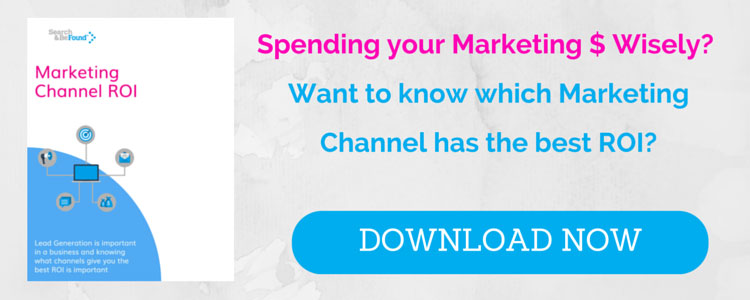If you want to have a clear picture of where marketing is going, try this exercise.
Get a group of people together. It doesn’t matter how few or how many; they can be staff, friends, cronies or anything else.
Then, out aloud, offer them the following challenge:
“I will give $10 to the first person who can tell me what the heaviest flying bird in the world is.”
I can guarantee you one thing. Unless someone in the group is a complete bird nerd, they will all grab their respective mobile phones and Google search it.
They will do this purely because this is what people do. Anytime they want to know about anyone or anything, they will hit Google.
Regardless of how much money you spend on outbound marketing, how hard you try to shoot your image around the place, every single person with a mobile phone can look for a product or service whenever and wherever they like.
Welcome to the new era where the potential customer has all the power. Welcome the dawn of inbound marketing.
The definition of Inbound Marketing
Inbound marketing is promoting a company through:
- blogs
- podcasts
- video
- eBooks
- email marketing
- whitepapers
- search engine optimisation (SEO)
- physical products
- social media marketing
- and other forms of content marketing which serve to attract customers through the different stages of the purchase funnel.
In contrast, buying attention, cold-calling, direct paper mail, radio, TV advertisements, sales flyers, spam, telemarketing and traditional advertising are considered "outbound marketing".
Inbound marketing refers to marketing activities that bring visitors in, rather than marketers having to go out to get prospects' attention. Inbound marketing earns the attention of customers, makes the company easy to be found, and draws customers to the website by producing interesting content.
An important fact in inbound marketing is providing customer feedback channels with the company for creating both trustworthy relationships as well as for consultations and sales. First of all, it’s a phone number, a feedback form.
Many companies are now realizing that their technical documentation, often considered a "necessary evil", is authoritative, trustworthy content that can be a company's most effective inbound marketing channel, generating more than half of overall site traffic and over half of lead generation.
David Meerman Scott recommends that marketers
"earn their way in"
(via publishing helpful information on a blog etc.) in contrast to outbound marketing, where they
"buy, beg, or bug their way in"
(via paid advertisements, issuing press releases, or paying commissioned sales people, respectively). The term is synonymous with the concept of permission marketing.
The inbound marketing term was coined by Brian Halligan, in 2005. According to HubSpot, inbound marketing is especially effective for small businesses that deal with high dollar values, long research cycles and knowledge-based products. In these areas prospects are more likely to get informed and hire someone who demonstrates expertise.
Inbound Marketing in Australia
Inbound marketing in Australia is somewhat behind in comparison to the rest of the world. Australian’s as business owners, marketing managers and sales managers are still relying heavily on outbound marketing techniques that have diminishing effectiveness. We really need to get on board with Inbound and start improving the quality of our leads to increase sales and maximise our profitability.
By the way, the heaviest flying bird in the world is apparently the Great Bustard (I Googled it).
.png?width=320&height=132&name=sbf%20powered%20by%20hubshots%20(1).png)

